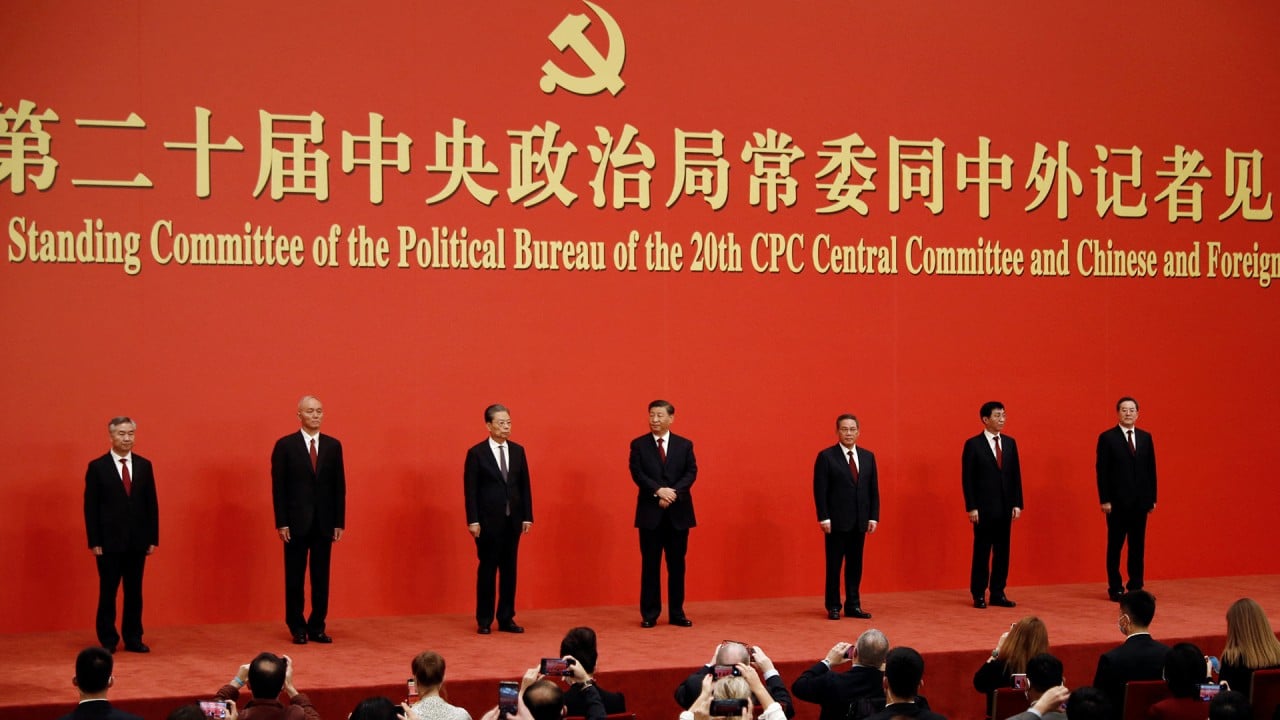
China-US relations: is Wang Yi, Blinken call a step to Xi-Biden summit?
- Beijing diplomat says relations need to return to normal, affirms major strategies like opening up unchanged
- Call between the two diplomats is the latest exchange since China’s crucial party congress as G20 summit looms
It would be in the common interest of the two countries, and meet the world’s expectations, if ties returned to a “normal track”, Wang said.
He also called on Washington to halt its newly announced export restrictions, which he said had seriously damaged China’s “just interests”.
The statement made no mention of differences over Taiwan, an issue which has prompted the worst tensions in decades, following US House Speaker Nancy Pelosi’s visit to the island in August.
The phone call also came about two weeks before the G20 summit in Indonesia, where it is possible US President Joe Biden and his Chinese counterpart Xi Jinping may meet.
The topic of Monday’s call was “US-China relations in the next stage”, according to Beijing’s readout, which quoted Blinken as saying Washington is willing to remain in communication with Beijing over bilateral ties, and that it is willing to conduct cooperation.
The US State Department said Blinken discussed the need to “maintain open lines of communication and responsibly manage” bilateral ties between the two nations. Blinken also raised Russia’s war against Ukraine and the threats it poses to global security and economic stability, according to a statement.
The two diplomats also discussed the deteriorating humanitarian and security situation in Haiti and the need for continued coordinated action in support of the Haitian people.
The phone call followed Wang’s meeting last week with US ambassador to China Nicholas Burns, when Wang said both nations would not be able to “change each other”.
US-China tensions have been rising, with Washington concerned over Beijing’s refusal to condemn Russia’s invasion of Ukraine.
Ties were further strained in August by US House Speaker Pelosi’s visit to Taiwan, which Beijing regarded as an endorsement by Washington of a pro-independence agenda for the island. Beijing responded with military drills encircling Taiwan, which the US criticised as coercion.
A new US national security strategy document has labelled China as the “most consequential geopolitical challenge” for the US, and Washington has restricted the export of more key technologies and hi-tech items, including “advanced computing chips”.
US security strategy calls China ‘most consequential geopolitical challenge’
Wu Hailong, a former assistant foreign minister, told an international affairs forum in Hainan province that China is not afraid of competition with the US.
“Competition will come alongside the way of China progressing towards becoming a modernised and strong nation,” he said, according to news website Guancha.cn on Sunday.
China will “boldly and confidently compete with the United States and Western countries”, while seeking to avoid confrontation and conflicts, Wu said.
Neither side has confirmed any plan for Biden and Xi to meet at the G20 summit, but there have been several exchanges of messages between China and the US in recent weeks.
Xi looks for ‘right way’ to mend China-US relations after party congress
In a letter last week to the National Committee on US-China Relations annual gala in New York, Xi said he wants a return to sound development in the relationship.
“China stands ready to work with the United States to find the right way to get along with each other in the new era, on the basis of mutual respect, peaceful coexistence and win-win cooperation,” Xi said.
In a message to the same event, Biden said the United States will continue to invest in boosting American competitiveness globally, and partner with any nation to maintain the “rules-based order”.
Ni Feng, director of the Institute of American Studies of the Chinese Academy of Social Sciences (CASS), said Monday’s call was “obviously to create an atmosphere” for a potential meeting – the first since Biden took office, and also the first time since the party congress, he noted.
Ni said it was hard to predict how Beijing will navigate its relations with Washington for the next period after the twice-a-decade gathering, but a “stable” relationship is undoubtedly beneficial to both sides.
“The communication [between Xi and Biden] itself is important enough,” Ni said, when asked what to expect from a face-to-face meeting between the two leaders.
Shi Yinhong, an international relations professor at Renmin University in Beijing, said the omission of Taiwan from the statement is “rare”, but both Beijing and Washington’s stance towards the self-ruled island remains clear.
“As to whether doing so will create a mild atmosphere for possible high-level talks, there could be many guesses, but it does not change the reality of opposing positions of the two sides on the Taiwan issue,” Shi said.
The effect of a possible leaders summit should not be overestimated, as communications between the two sides since last year have not significantly improved the relations, Shi said.



